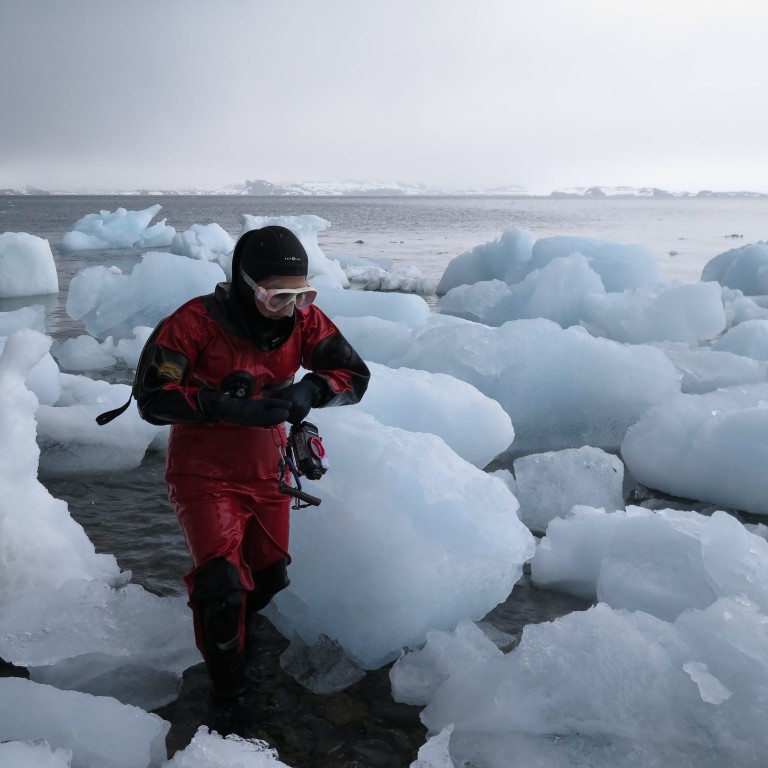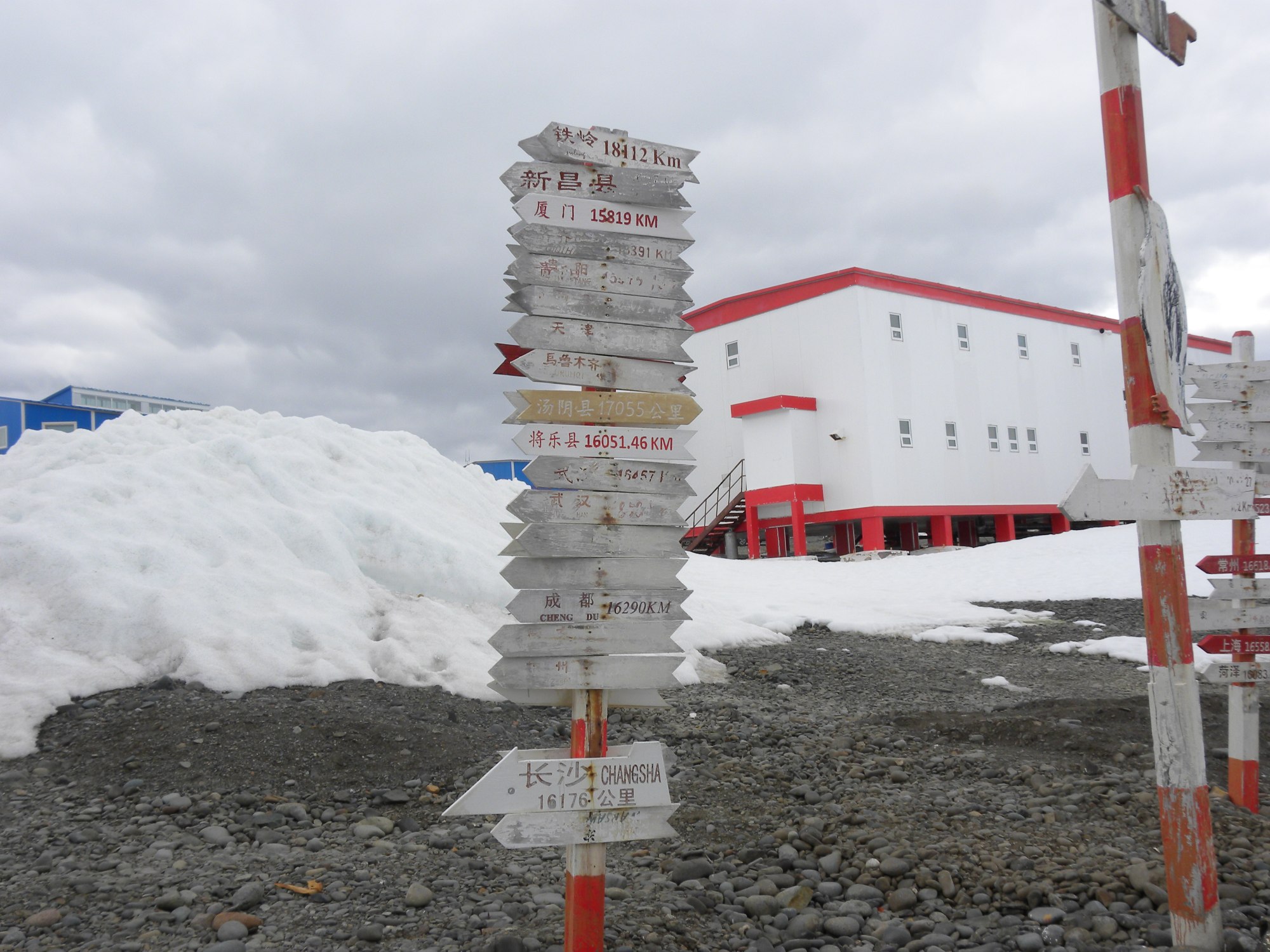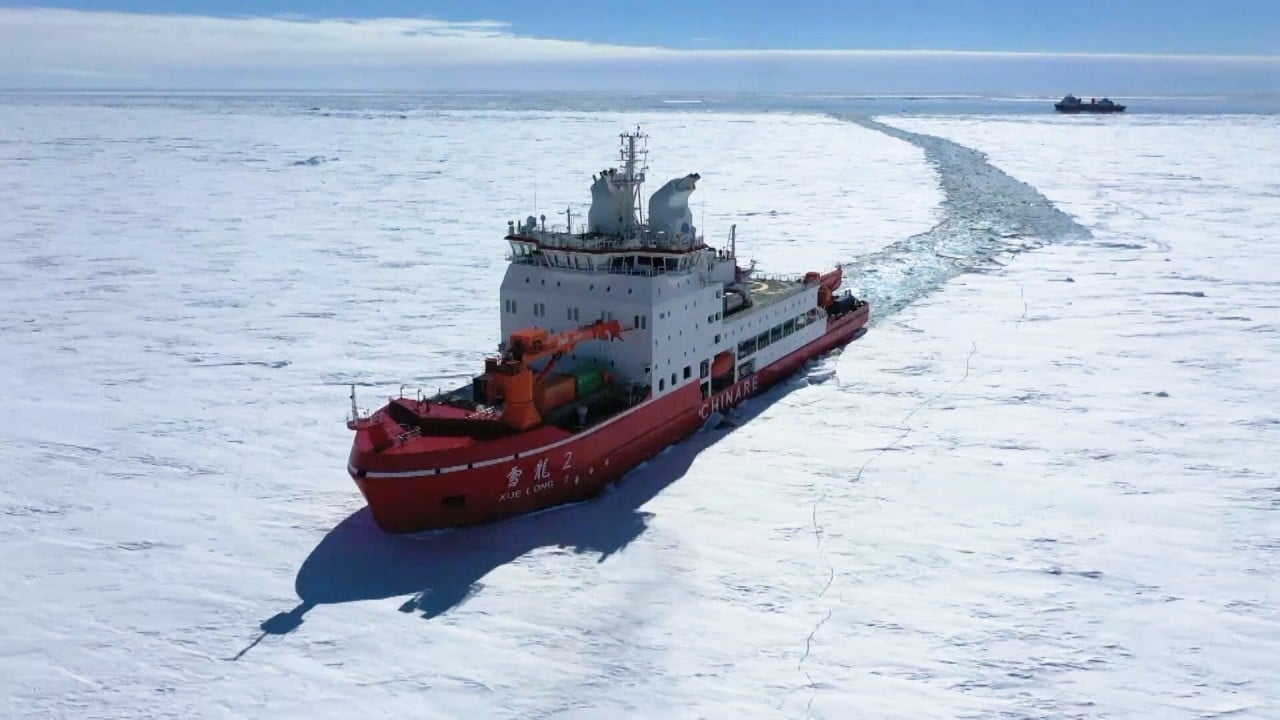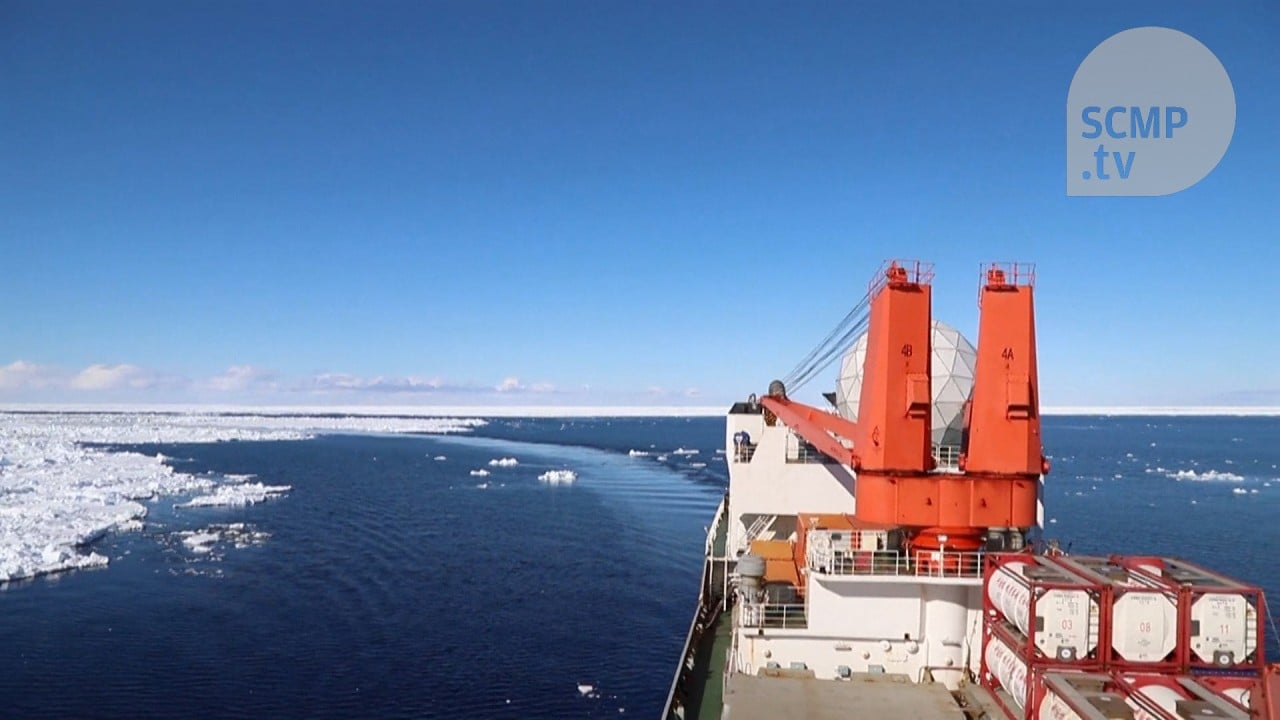
China offers Thai scientists a research base in Antarctica
- Thailand has sent scientists to join explorations by the Chinese National Antarctic Research Expedition since 2016
- A China-Thailand joint laboratory has been set up at China’s Great Wall Station in Antarctica
Diving in cold waters in a place as remote as China’s Great Wall Station is dangerous, but observing how the animals there behaved underwater could help humanity prepare for the effects of climate change, Suchana, an associate professor at Chulalongkorn University in Bangkok, said.
“I dived in front of the station so that I could explore what was inside,” she said in an interview in Bangkok. “Since the Chinese team had never dived there before, they asked Korean and Chilean counterparts, whose stations were not too far away, to help me.
“In Antarctica, each station or country cannot work alone.”
She said she retrieved an expensive water quality measuring device that had been accidentally dropped into the ocean for the Chinese team during the dive.
“Antarctica is a good place for all because of collaborations and help to each other,” Suchana said. “There’s no boundary.”
Thailand has been regularly sending scientists to join explorations by the Chinese National Antarctic Research Expedition since 2016. Their research includes assessing the impact of climate change.
Is China a key motivation behind Australia’s A$804m Antarctica funding boost?
Suchana said five Thai institutes renewed the memorandum of understanding with the Polar Research Institute of China in September, and a China-Thailand joint laboratory has been set up at China’s Great Wall Station in Antarctica as a research base for Thai scientists.
“Next time when we visit there, even though we don’t have our own station, we have our small lab,” Suchana said. She said China covered the expenses for Thai scientists who stayed at its stations, providing freezer suits, accommodation and food.

“In the past, we could only collect the samples, bring them back to Thailand and process the data,” she said. “But if we can do some small experiments there, we would get more accurate data and results.
“For example, when I collect an animal from diving, I can record the species name, how many there are and how deep they are. But when I will be able to do experiments there, I can investigate if the temperature is higher than normal and what kind of physiology of the fish will change.”
Scientists have been researching at the poles, which have been called natural laboratories because their largely untouched environments mimic a world without humans. Now, they are also there to study the amplified effects of climate change and find ways to prepare for global warming’s impact on human habitats, Suchana said.
She said carbon dioxide and pollutants ended up at the two poles, which acted like sinks because of the Earth’s rotation and wind patterns.
The first Chinese walks to South Pole to highlight climate crisis
“You definitely see much more impact than what you see here,” she said. “If we go there, we will know what’s really going on in this world. When we come back to the areas we live in, we can prepare and try to adapt to what will happen.”
The South Pole has warmed by more than three times the global average rate since 1989, according to a study published in 2020 by scientists from Britain, New Zealand and the United States.
They found the warming was mainly driven by warm ocean temperatures in the western tropical Pacific Ocean, which lowered atmospheric pressure and increased the delivery of warm air to the South Pole. They said it was also likely to have been intensified by increases in greenhouse gases.
In Antarctica, Suchana found more parasites on fish bodies in 2013 than five years previously, an indicator of more diseases under higher temperatures, as well as starving fish.
“They usually eat krill, but now they eat anything – we found crabs and other kinds of small animals in their stomach,” she said. “Krill stay under the ice. If there’s no ice, the krill disappear.”
“Thailand cannot go to Antarctica alone because we are not a member of the Antarctic Treaty,” she said, referring to the treaty signed in 1959 that emphasised the importance of scientific investigation and cooperation on the frozen continent. China, South Korea, Japan and India are the four consultative parties to the treaty from Asia.
“Unfortunately during the past two years, because of Covid-19, we stopped sending people there,” she said. “We will resume next year in December, when it’s summertime in Antarctica.”









